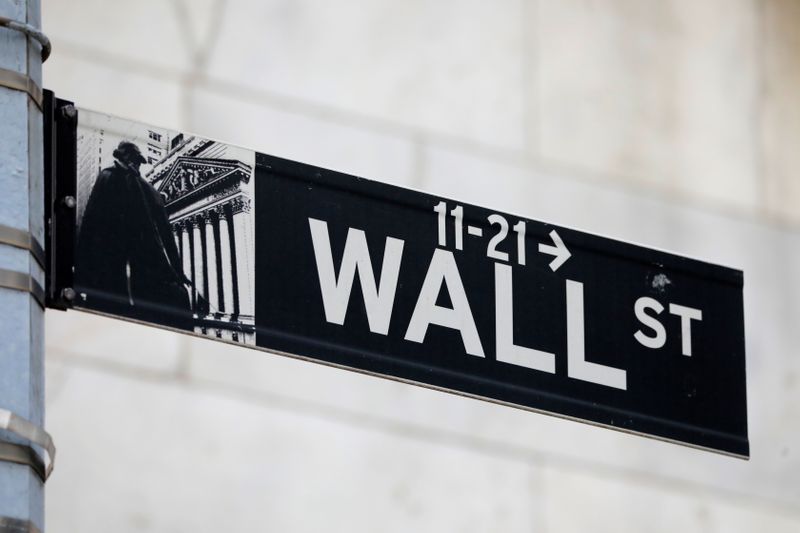By Peter Nurse
Investing.com -- U.S. stocks are seen opening lower Monday, handing back some of last week’s decent gains ahead of a big earnings week in the retail sector.
At 07:00 ET (11:00 GMT), the Dow Futures contract was down 165 points, or 0.5%, S&P 500 Futures traded 20 points, or 0.5%, lower and Nasdaq 100 Futures dropped 36 points, or 0.3%.
The three main Wall Street indices posted strong gains last week, helped by softer-than-expected inflation data which raised expectations that the Federal Reserve may dial back its interest-rate hikes, potentially pointing to the mid-June lows being the bottom of the cycle.
The blue chip Dow Jones Industrial Average gained 2.9% last week, the broad-based S&P 500 advanced 3.3%, its fourth positive week in a row, while the Nasdaq Composite gained 3.1%, also its fourth straight winning week.
The interest in the Federal Reserve’s next move, in September, means that the publication on Wednesday of the minutes of the central bank’s July meeting will be of key interest, with investors hoping that the central bank can pull off a soft landing for the economy while combating soaring inflation.
Also due on Wednesday will be the July retail sales figures, which will be watched for indications on the strength of consumer spending after a slowdown in second quarter growth.
As far as Monday is concerned, the main economic data release will be the NY Empire State Manufacturing Index, at 08:30 ET (12:30 GMT), which is expected to fall in August to 5.50 from 11.10 the previous month.
The retail sector will also be in focus in terms of corporate earnings this week, with Walmart (NYSE:WMT) and Home Depot (NYSE:HD) due to report second quarter earnings on Tuesday, followed a day later by Target (NYSE:TGT) and Lowe’s (NYSE:LOW).
Both Walmart and Target have recently cut forecasts and warned inflation was squeezing margins and forcing consumers to cut back on discretionary purchases.
Oil prices fell sharply Monday, weighed by a potential increase in supply by oil giant Saudi Aramco (TADAWUL:2222) as well as Iran, on top of concerns of slowing growth in China, the world's second-largest economy.
Saudi Aramco stands ready to raise crude oil output to its maximum capacity of 12 million barrels per day if requested to do so by the Saudi Arabian government, Chief Executive Amin Nasser said Sunday, as the state-owned energy firm announced one of the largest quarterly profits in history.
Iran signaled earlier Monday that it’s ready to compromise to revive the UN-backed plan on lifting sanctions, raising the potential of Iranian oil returning to the global market.
The Islamic Republic will respond to the European Union's "final" text by midnight on Monday, Foreign Minister Hossein Amir-Abdollahian said.
Economic data released earlier Monday showed China’s economic growth rate unexpectedly slowing in July, raising fears about oil demand destruction in the world’s largest importer.
By 07:00 ET, U.S. crude futures traded 4.8% lower at $87.67 a barrel, while the Brent contract fell 4.7% to $93.56.
Additionally, gold futures fell 1.3% to $1,792.60/oz, while EUR/USD traded 0.6% lower at 1.0202.
